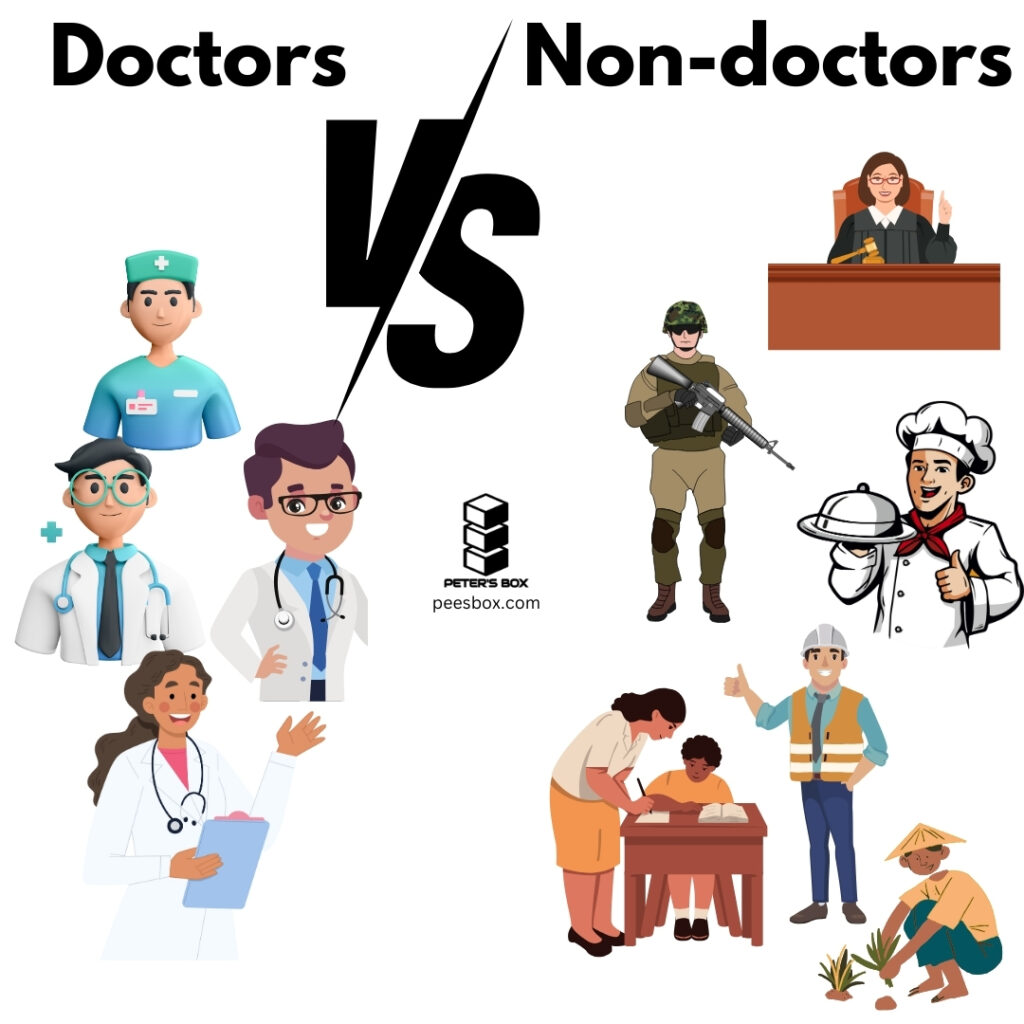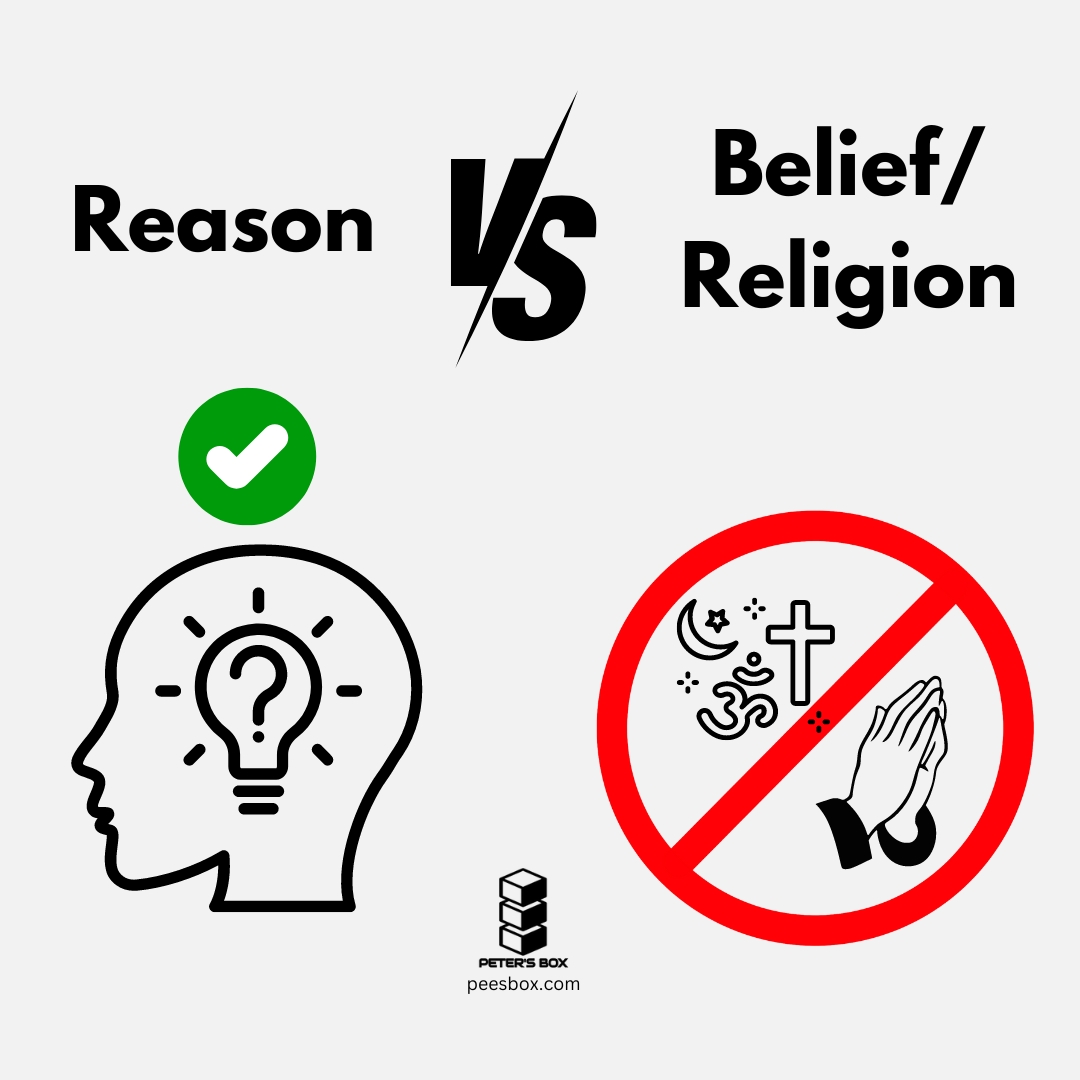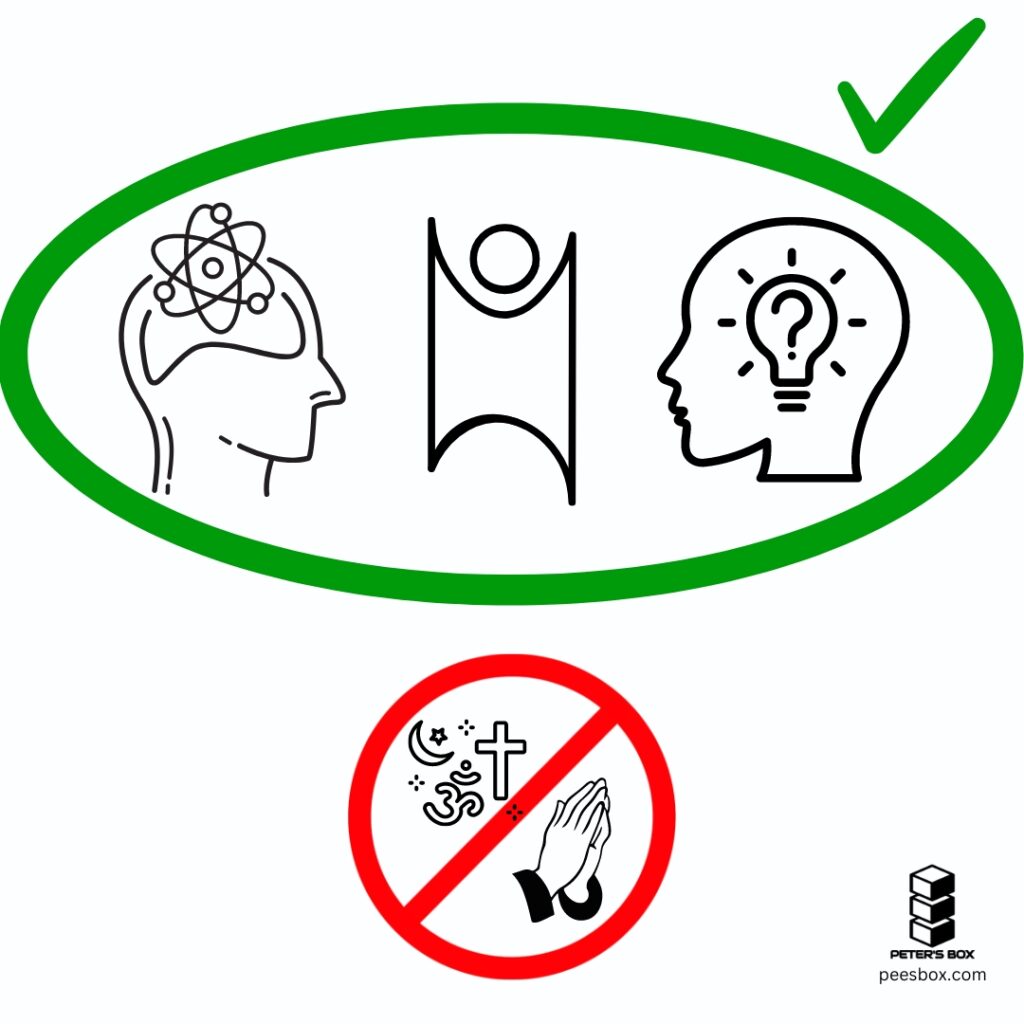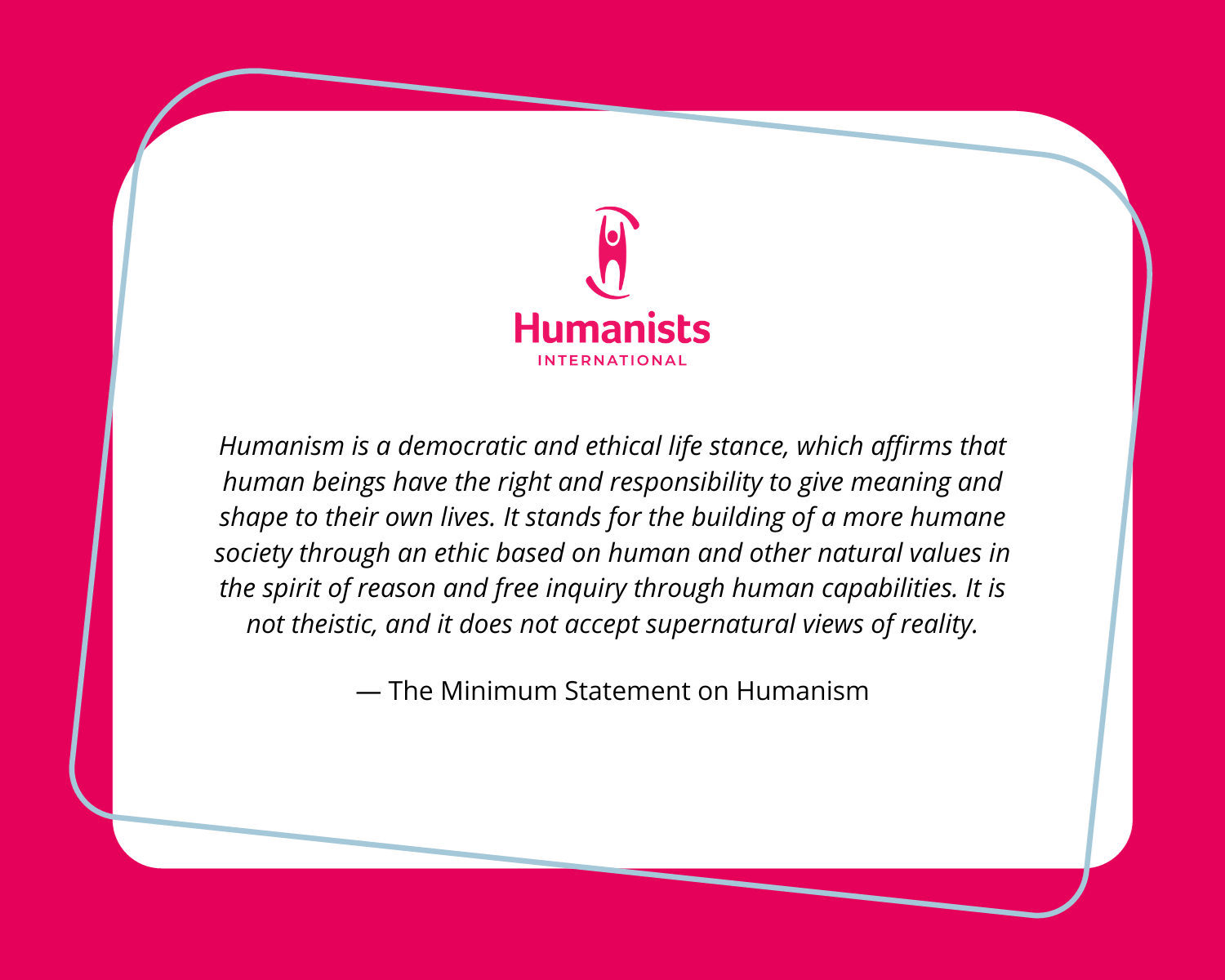Wait, what? You don’t believe in God? So, you are an atheist, right? What do you believe in? What do atheists believe in?
Two ways of answering
I shall attempt to address this question as an atheist and a philosophile. As an atheist, I’ll provide an open answer. What do atheists believe in? The explanation is that not all atheists have the same beliefs. That doesn’t address your question, does it? However, this is a modest response. Not all atheists share the same beliefs. In other words, I honestly don’t know what atheists believe.

The philosophical response I would provide is that the question “What do atheists believe in?” is typically a poorly constructed and likely misleading one. This is a popular question among my religious friends, and the definition of atheism would show why it is fundamentally flawed.
Where from atheism?
The phrase “atheism” is the reverse of “theism.” It is diametrically opposed to theism.
Theism is widely described as believing in the existence of a deity, gods, or goddesses, notably a creator of the universe. Theism takes numerous forms, including pantheism, deism, monotheism, and polytheism. The fundamental operating principle is the belief in the existence of a deity or gods.

What is atheism?
If atheism is the opposite of theism, then it is the absence of belief in deities, gods, goddesses, or the supernatural. Accordingly, an atheist is someone who does not believe in deities, gods, goddesses, or the supernatural. Atheism is sometimes represented as apathy or rejection of theism. This is because, typically, if you do not think something to be true, you do not accept it and hence reject it.
Theists BELIEVE in god(s), atheists DO NOT BELIEVE in god(s). Repeat that again because it would save you a lot of confusion. Theists BELIEVE in god(s), atheists DO NOT BELIEVE in god(s).
Atheist for different reasons
Bear in mind that, just as believers or theists have diverse reasons for believing in gods or deities, atheists may have varied reasons for not believing in gods or deities.

The belief systems of parents have an impact on their children. A child born to Christian parents is more likely to become Christian. A child born to Muslim parents is more likely to accept Islam. A child born in India to Hindu parents is more likely to follow Hinduism. They may decide later in life to convert to a new religion or belief system.
Most atheists were once religious
Following this generalisation, a child born to unbelievers or atheists is also likely to be an atheist due to the lack of a belief system in that household.
However, many atheists, like myself, were once believers. Most atheists you will meet were once theists. I was a Christian for the first twenty-three years of my life. During my final year at university, I renounced my faith in the Christian god. I did not convert to another religion. I abandoned both my Christian faith and all other religious beliefs. The reasons for switching from belief to unbelief might differ among atheists.
My Last Days In The Church
If you want to know why I left Christianity and became an atheist, see my post, “My Last Days in the Church.” Regardless of why someone might lean towards atheism, one thing is guaranteed. They do not believe in deities or gods. As a result, they do not live their lives in accordance with any principles established by gods, deities, or religion.

What do atheists believe in?
Back to the question. If atheists do not believe in god(s), what do they believe in? Belief doesn’t exist in a vacuum. Belief always has a topic of interest. For example, belief in god(s), aliens, love, democracy, justice, and so on.
Atheist believe in ...?
My initial response when friends ask me what I believe in as an atheist is to follow up with another question: believe in what? At this point, a big smudge of confusion appears on their faces. Either because they detect that their inquiry has an assumption that naturally contradicts the answer I supplied, or because they actually misunderstand me. Most religious people expect an atheist to state that they believe in some sort of supernatural force. But an atheist is one who does not believe in gods, goddesses, deities, or anything else labelled as supernatural.
Are you sure? They keep asking. Yes. Yes. Yes. I do not believe in the supernatural, including gods and deities. This answer seems to bounce off the vitrified position of my religious friends, as they can’t imagine me not believing in any kind of god. Hence their conditioned response: But you have to believe in something!
Atheists don't believe by definition
No, I don’t. Belief cannot be imposed, except under duress or when one’s life is at danger. You either believe something is true or you do not. By definition, one is a theist if they believe in gods or other deities. By definition, an atheist is someone who does not believe in gods or deities. I cannot be considered an atheist by definition if I believe in a god or other supernatural force. That will make me a theist.

If Belief were a profession
Let us use an analogy to simplify the belief dilemma. Let us imagine that believing in god or the supernatural is represented by a profession, such as medicine. Let’s refer to someone who practices medicine as a ‘doctor’. We can agree that if someone is not a doctor, the term ‘non-doctor’ can be used to refer to them.

Doctors vs Non-doctors
There are several types of doctors. Cardiologists treat the heart; optometrists treat the eye; gynaecologists treat female reproductive health; dermatologists treat the skin; and so on. They’re all medical professionals. It is incorrect to refer to someone as a medical professional who does not practice medicine. We’ll call them ‘non-doctors’.
A non-doctor, by definition, does not practice medicine. It is a loose term that does not specify what profession a non-doctor is. “Non-doctor” is not a vocation that is in demand. It refers to the absence of one. It’s simply a useful label to differentiate doctors from those who are not. The same is true for engineers and non-engineers, lawyers and non-lawyers.
Active vs Passive Belief
Here is the problem: non-doctors, non-engineers, etc. are not active professions. Therefore, it would be fatuous and surprising to ask the question, ‘What do non-doctors do?’ if the subtext of the question assumes that non-doctors should be practicing some kind of ‘medicine’ as a profession. If you expect non-doctors to practice medicine, then they are no longer non-doctors by definition.

Why do theists believe in god(s)?
The same applies to theism and atheism. Theists believe in god(s). Atheists don’t. Peter, you are really not being helpful. We just want to know what atheists believe in! What do atheists believe in? We now understand that atheists do not believe in god(s) or the supernatural. What do they believe in, then? The answer may be found in the same questions that breed and sustain theism.
When theists finally understand that I don’t believe in god(s) or the supernatural, they ask me these very questions.
The questions take the form of:
- So who created the world then?
- Do you pray? When you are in a difficult situation, who do you pray to?
- Where do you get your morals from? How do you determine what’s right and wrong?
Atheists believe that...
To theists, the answer to the forementioned questions is God. For most atheists, reason will not concur with or accept the existence of the god(s) as theists describe. Most atheists believe that reason is a more effective tool for navigating life than faith or belief. As a result, when it comes to the first question, most atheists will choose a scientific explanation for how the universe was made. Atheists don’t pray. Who will they be praying to? God? A concept they do not believe in? Most atheists accept that people have an important role in forming society. Humans are accountable for the status quo. Likewise with morals. Humans shape morality.

Not all atheists think alike
You’ll observe that the phrase ‘most atheists’ appears several times in this post. This is because atheism isn’t a belief system. It refers to the absence of belief in god(s). As a result, it is not prescriptive. It does not establish any rules, precepts, or commandments. It is also not a cohesive or structured system like religion. There is no sacred book for atheists. Neither is it managed by ‘leaders’.
Most atheists believe that...
Most atheists believe that the most reliable tools for navigating life are reason, science, and humanism. These three pillars form the foundation of humanist philosophy. Most atheists identify as humanists. They believe that humanism is the most beneficial ideology for human flourishing. Humanism is a philosophy that generally rejects supernaturalism or the divine in favour of emphasising an individual’s dignity, value, and ability to achieve self-actualization via reason.

Most atheist are humanists
Humanists are non-religious persons who strive to live satisfying, meaningful, and ethical lives, relying on reason and empathy to guide their decisions and actions. Humanists do not believe in god(s). They believe that it is possible to have a happy and meaningful life without practicing religion. They also do not follow a sacred text. Instead, humanists respect qualities such as reason and rely on science to explain how things work.
Definitions of Humanism
The term “humanism” has been defined differently by academics, and there isn’t a single, universally recognised definition.
In 1952, at the first World Humanist Congress, the founders of Humanists International agreed on a statement of the fundamental principles of modern humanism. They called it “The Amsterdam Declaration.”
Read more about humanism on the Humanists International website.

Atheism is not Humanism
Remember, not all atheists will call themselves humanists. But all humanists are atheists.
Atheism is not a worldview
Atheism does not represent an active worldview. There is no ‘one atheist’ viewpoint that all atheists embrace. Atheism is just a reaction to theistic claims. This means that without theism, there would be no atheists. Atheism is just a viewpoint on the question of god. It is a single-topic viewpoint. Atheism makes no claims about god. It’s the lack of one. Atheists will disagree on almost every issue other than god. Atheism is merely a helpful phrase for distinguishing between individuals who believe in god and those who do not. It does not describe an atheist’s everyday thoughts, beliefs, or actions.

Ask specific questions
People who practice religion lead their lives in accordance with it. There is no religion that atheists adhere to. They lack one.
I identify as a humanist. I actively promote reason, individualism, human rights preservation, and scientific development.
If you come across any atheists, it is more effective to ask specific questions about their opinions on a specific subject rather than inquiring about their ‘beliefs’.
What’s next in Peter’s Box? ¡Hasta luego amigos!



